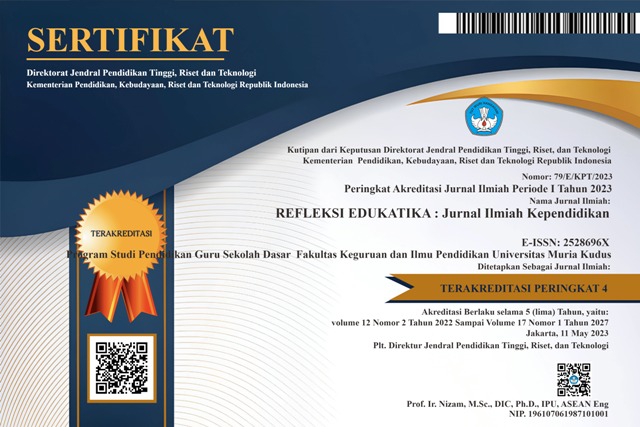PENGEMBANGAN MODEL BLENDED LEARNING UNTUK MEMPERKUAT KETERAMPILAN INTELEKTUAL MAHASISWA PADA MATA KULIAH PENDIDIKAN KEWARGANEGARAAN
Sari
The purpose of this study was to determine the virtues of making a blended learning model in improving students' civic skills in the Citizenship Education course.
The research method used is a combination method (Mixed Methods). The data collection techniques used were direct observation, direct communication, and direct follow-up communication strategies along with data collection instruments such as observation guides, interview guides, and questionnaires. Qualitative data analysis developed by Miles and Huberman is used in this study.
The results showed that the implementation of Citizenship Education learning at the IKIP PGRI Pontianak during the Covid-19 pandemic was online and offline. Development of blended learning model steps. In the first stage, the powerful lecturer starts learning with the zoom meeting application. In the second stage, the lecturer performs a demonstration and presentation of knowledge by strengthening skills. The third stage, the lecturer guides the training. The fourth stage, checking understanding and feedback. The fifth or final stage is the follow-up and closing evaluation. The blended learning model is effective in strengthening students' intellectual skills. This can be seen from the results of the questionnaire analysis, namely that students' intellectual skills achieve an actual score of 5391 out of an ideal score of 7140, with a percentage reaching 76%, in the Good category. The results showed that students were able to identify problems, describe problems and make decisions about the problems they faced.
Teks Lengkap:
PDFDOI: https://doi.org/10.24176/re.v13i1.7039
Refbacks
- Saat ini tidak ada refbacks.
Visitors:





